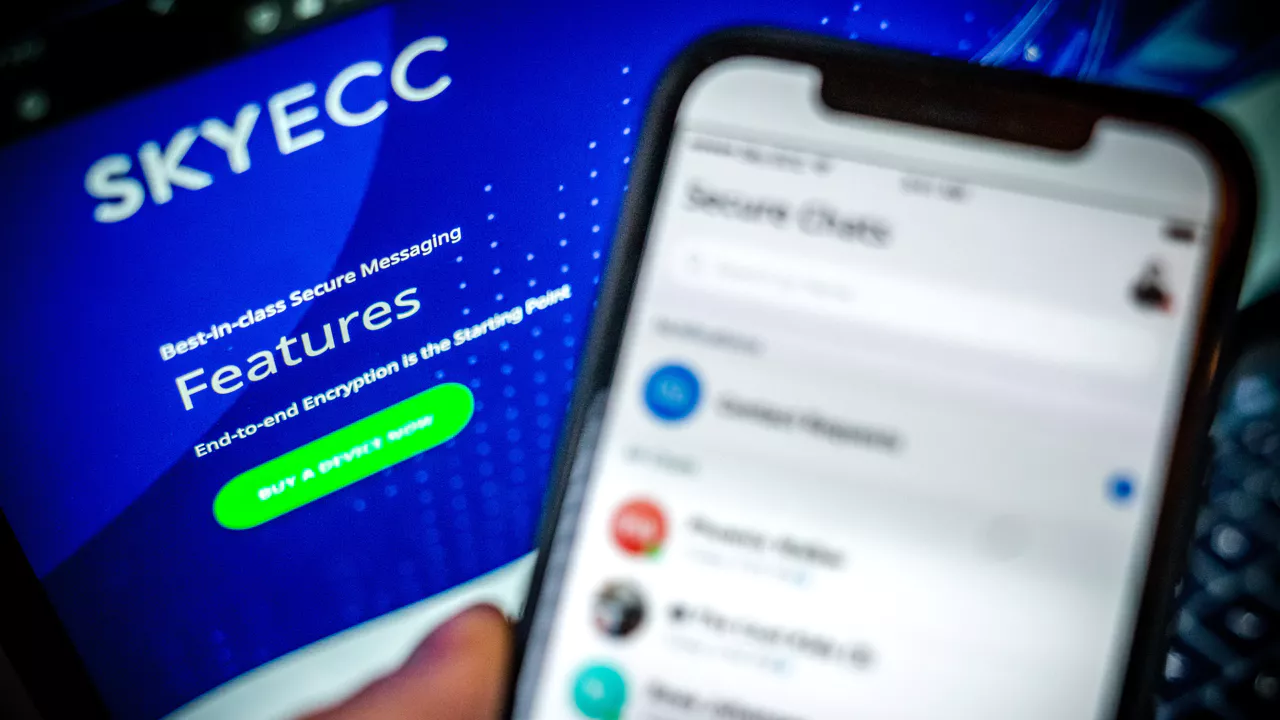Constitutional Court to decide if “Sky ECC” communications will be admissible as evidence in criminal cases

The Constitutional Court of Albania is review whether communications intercepted from the “Sky ECC” platform can be used as evidence in criminal investigations led by the Special Prosecution Against Corruption and Organized Crime (SPAK).
Why is this important
These communications, decrypted by international law enforcement agencies and shared with Albanian authorities, have led to the arrests of dozens of individuals and have shed light on many unsolved crimes in the country. SPAK has filed charges against various people based on this evidence, which has not only illuminated involvement in criminal activities but also revealed connections between crime, politics, and business figures.
Background
The issue was brought to the Constitutional Court by Pëllumb Gjoka, a businessman that was revealed to be a major crime head by decrypted “Sky ECC” messages he exchanged with notorious mobsters who appeared to be his partners. His lawyers brought the case to the Constitutional Court after the High Court rejected his appeal to dismiss the “Sky ECC” communications as evidence and to revoke the security measures imposed by the Special Court against Corruption and Organized Crime (GJKKO). Gjoka is seeking to invalidate the “Sky ECC” communications, arguing that they should not be admissible in court.
The case, originally reviewed in the chamber of consultation, has now been moved to a public hearing, as reported by BalkanWeb. The Constitutional Court is expected to set a date for the hearing within a few days.
Implications and arguments
Gjoka’s lawsuit against the Special Prosecution (SPAK) challenges the legality of the evidence obtained from “Sky ECC.” This platform, previously used by criminal groups for encrypted communication, was infiltrated by Belgian and French authorities. The data was then provided to Albanian investigators, leading to arrests and charges against multiple individuals. However, the accused have disputed the legitimacy of how the evidence was obtained, calling into question the role of foreign authorities and the methods used by SPAK.
The Constitutional Court has provisionally decided to move the case to a public session, but no final ruling has yet been made. SPAK, on the other hand, insists that the Court reject the appeal and uphold the rulings made by GJKKO and its appellate branch, which have deemed the “Sky ECC” communications as legally admissible evidence.
Next steps
By Tuesday, Gjokaj’s defense attorneys are expected to submit additional documents requested by the Constitutional Court to further evaluate the case. The final decision on the admissibility of the “Sky ECC” evidence is highly anticipated, as it could have significant implications for ongoing and future prosecutions against criminal groups in Albania.
The outcome of this case will not only affect the individuals currently under investigation but may also set a precedent for the use of similar digital communication evidence in criminal investigations in Albania.
The use of evidence obtained from “Sky ECC” communications is under heavy scrutiny across various European courts. The legality of using such evidence, obtained through international law enforcement hacks of encrypted communication platforms like “Sky ECC” and “EncroChat”, has been challenged in multiple countries.
Courts in Germany, Norway, and the UK, for example, have raised questions about whether using this hacked data violates fundamental rights, such as the right to a fair trial. Many of these challenges focus on whether the evidence was legally obtained and if it can be adequately challenged by defendants. Germany recently sent a request for a preliminary ruling to the Court of Justice of the European Union (CJEU) to assess whether the use of data from these hacks complies with European law. The Italian Supreme Court has also ruled that prosecutors must disclose how the messages were obtained in the Sky ECC operation. The rulings reflect broader concerns over privacy and the legal framework governing cross-border data sharing in criminal investigations.


